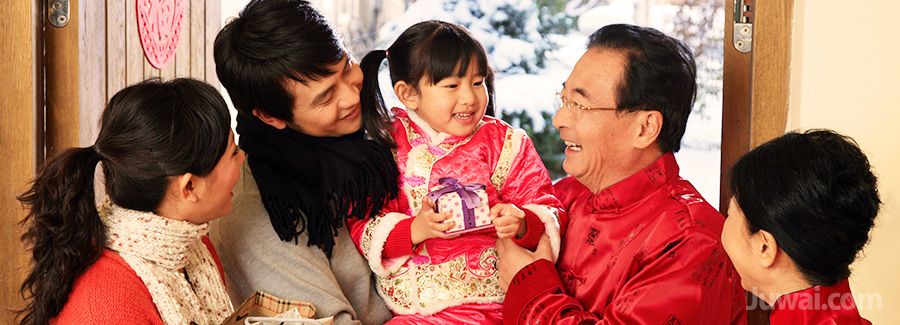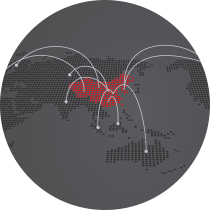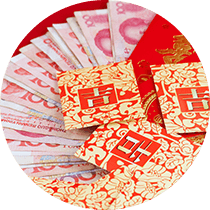亚洲新闻
- 主页
- 新闻
- 亚洲新闻
You've successfully copied this link.
Juwai Quiz: How well do agents know Chinese New Year?

Chinese New Year, also known as Spring Festival or Lunar New Year, is the biggest and most important Chinese festival celebrated by Chinese worldwide.
For those marketing property to Chinese real estate investors, this is a significant festive period to heed and leverage. How much do international agents and real estate professionals really understand about this huge Chinese holiday, though?
We asked 1,224 global agents and property professionals to take a short quiz, and found that most knew the basic general details about Chinese New Year, but didn't fully grasp the more pertinent (and vital) knowledge of this festive period.
Over half knew when the Lunar New Year is happening this year (53%) and that 2017 is the Year of the Rooster (52%), while a substantial 77% knew that giving money is the most common activity during Chinese New Year.
However, less than 30% knew how many Chinese travelled overseas (25%) and how much they spent abroad (29%) during the Spring Festival Golden Week – useful information that any agent keen to market international real estate to Chinese property buyers should know.
In other words, global real estate professionals still need to put in more effort when it comes to understanding the Chinese market, and need more preparation in terms of welcoming Chinese buyers during this important Chinese festival and peak travel period.
That said, if you've missed out on taking the quiz or are new to the Chinese market, fret not. Here are the questions and answers for the Juwai Chinese New Year Quiz, which doubles up as a useful Chinese New Year 101 to give you a quick lowdown on this traditional Chinese holiday.
#1 When does Chinese New Year fall in 2017?
28 January 20171 – the exact date of Chinese New Year changes each year, as determined by the Chinese lunar calendar, though. However, it generally falls during late January or early February. The holiday, however, is one of two week-long holidays in China known as the Golden Week, during which Chinese are increasingly choosing to travel overseas. For those interested in overseas property, this is prime time for property hunting as well.
#2 What is the a​nimal sign in the Chinese Zodiac for 2017?
There are 12 Chinese Zodiac signs, and 2017 is the year of the Fire Rooster.2 This year is predicted to be a successful year for businessmen, athletes, and soldiers – people of action. If dynamic action gives you strength, then this year is for you. Initiative, industriousness, generosity, and honesty are also key positive features for this year.
#3 Which activity is the most common during Chinese New Year?
Giving money in red packets is the most common activity during Chinese New Year. Those who are more superstitious avoid buying new shoes, which represents bad luck; sweeping floors, which signifies sweeping wealth out of the door; or washing clothes, which implies you’ll wash away good luck. Chinese believe giving red packets protect the younger generation from sickness and death.3
#4 How much did Chinese travellers spend in total during their Chinese New Year travel overseas in 2016?
¥90 billion ($13.13 billion), that's how much. Chinese New Year traditionally lasts for 15 days, but nowadays the holidays can last between six to 19 days, during which Chinese travellers spent an average of ¥15,000 (US$2,300) per person last year in 2016.4 This can mean huge boosts for many economies, which is why you see retailers around the world catering to Chinese tourists during this time of year.
#5 How many Chinese travelled internationally during Chinese New Year in 2016?
Approximately 6 million Chinese travelled overseas during 2016 – a 16% increase from 2015, following a 10% growth from 2014.5 This trend will likely grow in the years to come, which means we’ll see an increase in Chinese visitors in all parts of the world, often leading to increased interest in investment in these destinations as well.
#6 How many red packets were sent on WeChat last Chinese New Year?
WeChat’s Red Packet feature showed that 420 million users gave or received 8 billion red packets last year – most who sent a symbolic amount such as ¥8.88 or ¥20.16, which include numbers to represent luck and fortune.6 So, if 8 billion WeChat red packets (each containing ¥8.88) were exchanged, that amounts to ¥71.04 billion ($10.37 billion) of lucky money! However, that only accounts for 30% of China’s population – most red packets are actually exchanged offline.7
Sources: 1. China Highlights: Chinese New Year Dates 2017; 2. Sunsigns.org: Chinese Horoscope 2017 – Year Of The Red Fire Rooster; 3. China Highlights: Chinese New Year Taboos - Things You Should Not Do During Chinese New Year; 4. Global Blue: Chinese New Year 2016: overseas travel trending; 5. Lawrieongold: 10 key statistics for China’s New Year; 6. China Channel: You Won’t Believe WeChat’s Chinese New Year 2016 Stats; 7. Nielson Norman Group, China Channel;
喜欢这篇文章?免费注册,获取居外亚洲市场的最新资讯!
排序
- 2025
- 2023
- 2022
- 2021
- 2020
- 2019
- 2018
- 2017
- 2016
- 2015
- 2014
- 2013
- 2012
标签
- australia
- china
- chinese buyers
- investment
- juwai
- property
- real estate
- residential
- united kingdom
- united states
Thank you for subscribing to Juwai News!
Sign up for a Juwai Account now for free to enjoy FREE download access to country-specific reports on Chinese property investments.
Do you want to sign up now? Or continue if you have already signed up or you will do it later.


